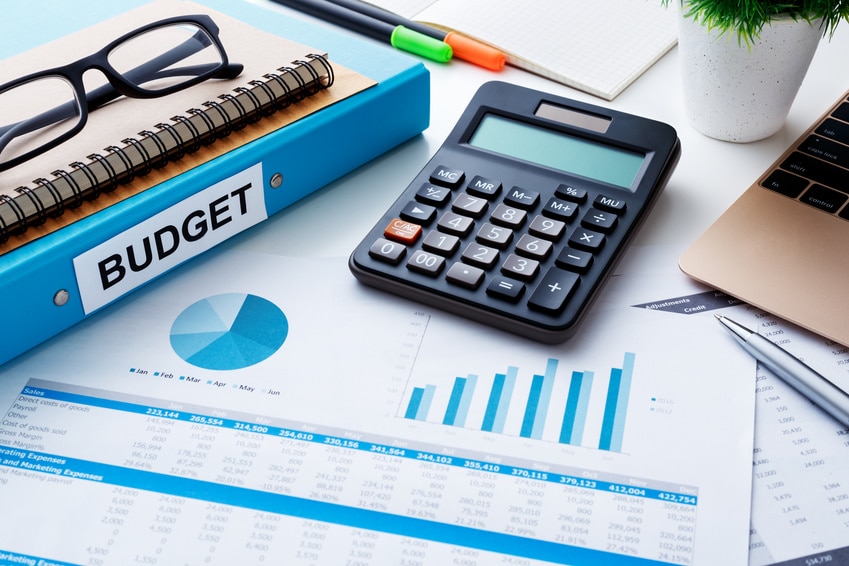As the global pandemic outbreak continues to produce economic instability and uncertainty across the world, many people are worried about their financial well being. Of course, it’s perfectly natural to have some level of concern over your finances given the current state of things. However, there are always steps you can take in order to take control and responsibility over your finances, regardless of the external circumstances. Here’s some simple tips to better manage your finances during these wild times.
Don’t neglect your health
First and foremost, it’s crucial to stay on top of your health. While this may seem obvious during the midst of a global pandemic, it still bears repeating. Many people, for example, may take the necessary steps to prevent the coronavirus, while simultaneously letting other aspects of their health decline. Saving money begins with looking after your health. Preventative health measures not only improve your overall quality of life, but they also help you to avoid the kinds of costly medical procedures that can make major dents in your budget.
While looking after your mental and physical health during this global pandemic is certainly important, you shouldn’t overlook your oral health either. Maintaining strong dental health habits will keep your smile looking happy and healthy. Consider the timeline involved in orthodontic treatments if needed. Most orthodontic treatments take between 18 months to 2 years to get the desired results. It’s best to avoid these kinds of procedures in a time of such uncertainty. Therefore, looking after your dental health is one of the best ways to prioritize saving money while also caring for your teeth and gums. A global pandemic is no excuse to quit your daily brushing and flossing routines!
Reduce travel costs however you can
While saving money on travel costs may seem like a simple enough idea during this outbreak, there are many levels of savings to be had. Surely you don’t want to risk boarding a flight during this time, but this outbreak may also present an opportunity to analyze your other travel habits, and take a look at just how much they might be costing you. Commuting to and from work each and every day, for example, is a common way that many people spend significant amounts of money. Even if getting back and forth to work each day may not seem too costly, it certainly adds up, especially when you take a step back and look at things from a larger perspective.
While reducing your commute time to work and back may not be possible for some people, you can certainly make changes to decrease the amount of time you spend out on the roads. Think about ordering goods and essentials online, for example. Did you know that in the year 2017, an estimated 1.66 billion people worldwide purchase goods online? This figure is only expected to increase as websites make it easier to shop online. Ordering your essential items and personal goods online can save you a trip to the grocery store or pharmacy, which can be an excellent thing for anyone who is focused on saving money both in the short term and onward into the future.
Prepare an emergency fund
If you haven’t already set up an emergency fund, then the recent outbreak has likely created even more panic and worry for you and your family. As many places of business shut down and people lose their jobs, it’s more important than ever before to know that you have some money to fall back on. Even if you haven’t lost your job due to the current economic climate, there’s no telling where things may go from here. It’s never too late to start saving money and having it handy to cover unexpected expenses that may pop up.
In the middle of the outbreak, many people may be tempted to make desperate moves with their money. However, playing it safe is far more advisable in the current situation. Steering clear of declaring bankruptcy is also wise given the unpredictable nature of the economy right now. The entire Chapter 7 bankruptcy process usually takes about six months. In such unstable economic times, it’s a good idea to do everything in your power in order to avoid having to declare bankruptcy. Even if you may not feel as though you’re close to bankruptcy, having a sufficient emergency fund in place can provide you with the economic security and psychological well being that you may need to make it through the next few months.
Avoid unnecessary spending
If you’re interested in saving money, then you should always be mindful of your spending habits. This current global pandemic actually serves to highlight your spending habits more clearly. Have you gotten into the habit of eating out at restaurants far too often? Try cooking at home more frequently. Do you have subscription payments for services that you hardly use? Now is the perfect time to reassess your monthly subscriptions and cancel the ones you aren’t making use of. It’s tough to deal with situations such as the current coronavirus outbreak, but there are always silver linings to be had. If this time has exposed some of your poor spending habits to you, then you can take advantage of using this time to correct course toward a brighter financial future.
Speak with a certified financial planner before making investments
With the severe economic downturns happening in recent times, many people may be curious about getting involved in the stock market. While the market has certainly taken some significant losses, it’s wise to consult with a professional before making any moves. Sure, you may see that some stocks you’ve been watching are available at a much lower price, but there’s simply too much uncertainty right now to accurately predict just how low things may go. It’s prudent to speak with a certified financial planner before you rush into the market and end up making a mistake that you may regret.
Plan ahead for major purchases
While no one knows just how long the current global pandemic will last, it’s probably safe to assume that it won’t last forever. Even so, it’s a good idea to hold off on making any drastic purchases until you’re certain your budget can handle it. In this way, planning ahead for a major purchase is your best option. After you’ve set up your emergency fund and made sure that other aspects of your financial life are handled, you can begin to set money aside for a big purchase. Just make sure it’s not anything that is going to knock you off track on the way toward saving money and reaching your financial goals.
The current global pandemic has led to unstable economic conditions and almost everyone is affected. By staying smart with your money and following these simple tips, we hope you can stay afloat throughout these challenging times. Wash your hands, keep your head up, and don’t stop saving your money and practicing good financial habits!










